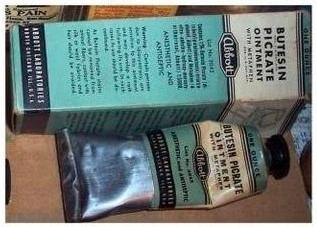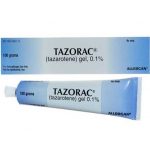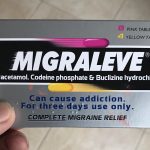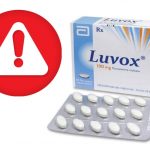Why Was Butesin Picrate Taken Off The Market?

Butesin Picrate belongs to a group of medicines known as topical local anesthetics. Topical anesthetics are used to relieve pain and itching caused by conditions such as sunburn or other minor burns, insect bites or stings, poison ivy, poison oak, poison sumac, and minor cuts and scratches.
Topical anesthetics like Butesin Picrate deaden the nerve endings in the skin. They do not cause unconsciousness as do general anesthetics used for surgery.
Most topical anesthetics are available without a prescription; however, your doctor may have special instructions on the proper use and dose for your medical problem.
Why Was Butesin Picrate Taken Off The Market?
Based on research, Butesin Picrate does not appear to be available on the market anymore and any genuine product in the hands of users has also long expired. It appears the manufacturer (Abbott Australasia) discontinued the production of Butesin Picrate for business reasons.
The FDA had previously issued a public health advisory to alert health care professionals and patients about potentially serious and life-threatening side effects from the improper use of topical anesthetics like Butesin Picrate.
The advisory on skin-numbing products was prompted by new reports of adverse events—especially the deaths of 2 women who used topical anesthetics before a laser hair removal procedure. The use of these products before cosmetic procedures is of particular concern to the FDA, because a medical professional may not be present to supervise.
Topical anesthetics can be absorbed into the bloodstream and, if used improperly, may cause side effects, such as irregular heartbeat, seizures, breathing difficulty, coma, or even death, the FDA warns.
If you are using this Butesin Picrate or alternatives without a prescription, carefully read and follow any precautions on the label. For topical anesthetics, the following should be considered:
Allergies—Tell your doctor if you have ever had any unusual or allergic reaction to a local anesthetic, especially when applied to the skin or other areas of the body. Also tell your health care professional if you are allergic to any other substances, such as foods, preservatives, or dyes, especially aminobenzoic acid (also called para-aminobenzoic acid [PABA]), to parabens (preservatives in many foods and medicines), or to paraphenylenediamine (a hair dye).
Pregnancy—Although studies on effects in pregnancy have not been done in humans, topical anesthetics have not been reported to cause problems in humans. Lidocaine has not been shown to cause birth defects or other problems in animal studies. Other topical anesthetics have not been studied in animals.
Breast-feeding—Topical anesthetics have not been reported to cause problems in nursing babies.
Children—Benzocaine may be absorbed through the skin of young children and cause unwanted effects. There is no specific information comparing the use of other topical anesthetics in children with use in other age groups, but it is possible that they may also cause unwanted effects in young children. Check with your doctor before using any product that contains a topical anesthetic for a child younger than 2 years of age.
Older adults—Many medicines have not been studied specifically in older people. Therefore, it may not be known whether they work exactly the same way they do in younger adults or if they cause different side effects or problems in older people. There is no specific information comparing use of topical anesthetics in the elderly with use in other age groups.
Other medicines—Although certain medicines should not be used together at all, in other cases two different medicines may be used together even if an interaction might occur. In these cases, your doctor may want to change the dose, or other precautions may be necessary. Tell your health care professional if you are taking any other prescription or nonprescription (over-the-counter [OTC]) medicine.
Other medical problems—The presence of other medical problems may affect the use of topical anesthetics. Before using a topical anesthetic, check with your health care professional if you have any other medical problems, especially:
Side Effects of This Medicine
Along with its needed effects, a medicine may cause some unwanted effects. Although not all of these side effects may occur, if they do occur they may need medical attention.
Check with your doctor immediately if any of the following side effects occur:
Less common
- Large swellings that look like hives on the skin or in the mouth or throat
- Symptoms of too much medicine being absorbed by the body—very rare
- Blurred or double vision; confusion; convulsions (seizures); dizziness or lightheadedness; drowsiness; feeling hot, cold, or numb; headache; increased sweating; ringing or buzzing in the ears; shivering or trembling; slow or irregular heartbeat; troubled breathing; unusual anxiety, excitement, nervousness, or restlessness; unusual paleness; unusual tiredness or weakness
Also, check with your doctor as soon as possible if any of the following side effects occur:
- Burning, stinging, or tenderness not present before treatment; skin rash, redness, itching, or hives
Other side effects not listed above may also occur in some patients. If you notice any other effects, check with your doctor.





